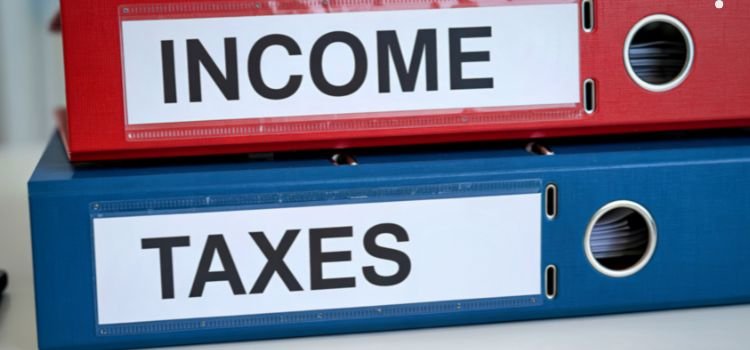One of the first financial questions that comes up when you move to the UK is: what happens to the income I earn abroad?
Once you’re living here, it’s natural to wonder if HMRC will expect a slice of that too.
The answer is yes — but with some important details.
The UK doesn’t just tax what you make locally. Depending on your residence status and how long you’ve been here, your offshore income and gains can also be taxed.
And there have been recent changes to the rules, so the way this works has shifted for new arrivals.
So let’s walk through what’s changed and what you should be thinking about from day one.

When does the UK start taxing your offshore income?
The key factor is whether you’re considered a UK tax resident. Once you’re a resident, it can also take into account your income and gains from overseas.
How do they decide if you’re a resident? HMRC uses the Statutory Residence Test (SRT). In short, it looks at:
- How many days you spend in the UK.
- Do you have a home here?
- Do you work in the UK?
- Other ties, like close family living here.
If you move partway through a tax year, you might qualify for split-year treatment. This means you’ll only be treated as a UK resident from the date you arrive, rather than for the whole tax year.
Once you meet the residence test, HMRC can start taxing your offshore income. That could be rental income from a property overseas, dividends from foreign shares, or interest from an international bank account.
Knowing exactly when you become resident matters because it marks the point your worldwide income might come into play.
How the new four-year regime affects your offshore income
In April 2025, the UK made changes to the way it taxes people with money abroad.
The new system is called the Foreign Income and Gains (FIG) regime, and if you’re moving here with investments, property, or savings overseas, it’s something you’ll want to know about.
During your first four years in the UK, you get a bit of a tax holiday on your offshore income. That means if you’re earning rent from a flat in Hong Kong, collecting dividends from US shares, or building interest in a Singapore bank account, you won’t pay UK tax on it as long as you keep the money outside the UK.
Once those four years are up, the rules flip. From then on, the UK taxes your offshore income in full, even if you leave the money abroad. So the same rent or dividends that were tax-free in your early years here will suddenly need to be reported to HMRC.
It’s not just individuals who are affected, either. Many expats have offshore trusts or companies, and those structures are also losing some of the protections they used to enjoy. If you’re a beneficiary of a trust, for example, distributions that once avoided UK tax could soon be caught.
Four years can pass quickly, and after that, the UK takes a much closer interest in your worldwide income.
Thinking ahead about what you do with your offshore earnings, whether you spend, save, or restructure them, can make a real difference to your future tax bills.
You can find more details in HMRC’s update on the Foreign Income and Gains regime.

How different types of offshore income are taxed in the UK
Not all offshore income is treated the same way once you’re a UK resident.
Here are some examples of how the rules usually play out:
Rental income from overseas property
If you’ve got a holiday home in Spain that you rent out, the income is taxable in the UK once your FIG period runs out.
You’ll need to report it on a UK tax return, and that means converting the figures into sterling and keeping careful records.
If Spain already taxes that income, you may be able to claim relief under the UK–Spain tax treaty, but it still has to go on your UK return.
Dividends and investment income
Have shares or funds abroad? Those dividends and gains can eventually fall into the UK system, taxed at UK dividend or capital gains tax rates.
If the country where you invested has already taxed it, the UK’s network of double tax agreements can help reduce duplication, but planning is key to avoid paying more than you should.
Foreign pensions
Many expats assume pensions earned overseas won’t be taxed again in the UK. In fact, most pension payments you receive once resident here are treated as taxable income.
Some treaties give you partial relief, but generally, if you’re receiving it while living in the UK, HMRC expects a slice. See HMRC’s guidance for the details.
Trusts and family wealth structures
If you’ve set up a trust, changes coming in April 2025 are worth noting.
UK tax may be applied directly to the settlor on income and gains, even if the funds stay offshore.
This is a big shift for internationally mobile families who’ve relied on trusts for years.
Steps expats can take to manage offshore income tax efficiently
Get clear on your UK residence status early.
Your tax position all starts with whether you’re considered resident in the UK. The Statutory Residence Test sets out the rules, and working this out as soon as possible helps avoid surprises later.
Review how you bring money into the UK.
If you’re on the remittance basis, only the income or gains you bring into the UK get taxed here. That makes it worth planning how and when you transfer funds, especially from mixed accounts.
Check whether double tax treaties can help.
The UK has agreements with many countries to prevent the same income being taxed twice. For example, if you’ve paid tax on rental income abroad, you may be able to offset that against your UK bill. The full list is on the UK government website.
Keep solid records.
Bank statements, property income summaries, investment reports. Having these organised makes reporting much smoother and protects you if HMRC ever has questions.

Work with a tax adviser who understands cross-border issues.
The rules for offshore income are full of detail, and mistakes can be expensive. Having someone who knows how to structure your finances and who stays ahead of changes, like the 2025 reforms to non-dom taxation, gives you real peace of mind.
Conclusion
For expats, offshore income doesn’t stay “offshore” once you’re living in the UK.
HMRC will want to know about it. Once you understand your residence status, how different income types are treated, and what planning options you have, it becomes far more manageable. Taking advice early can save stress and unnecessary costs.
Thanks for reading!

Meet Mo
Mo is experienced in dealing with clients from start-ups and expanding businesses for UK property investors in the retail and hospitality sector. He also brings his extensive experience in setting up and managing hotels, cafes, restaurants and rental properties across the UK to help clients achieve their business goals and succeed.
He regularly shares his knowledge and best advice here on his blog and on other channels such as LinkedIn.
Book a call today to learn more about what Mo and Monarc Finance can do for you.

